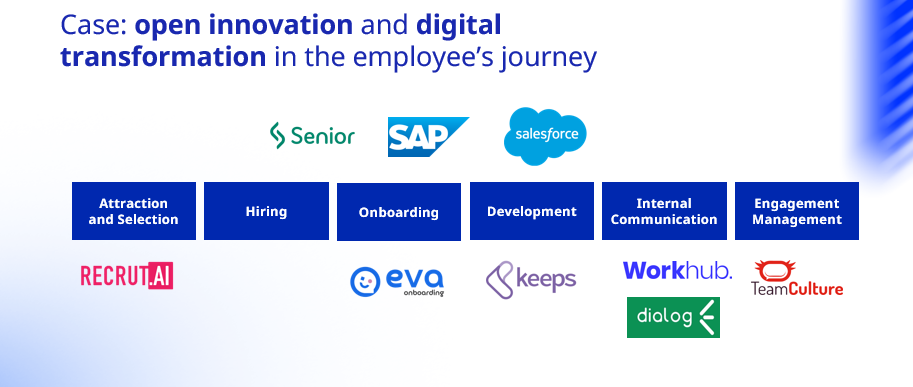The role of HR in digital transformation
Companies constantly work to find better ways to operate, simplify processes, enhance customer experiences, and to overcome these challenges, digital transformation (DX) and innovation are key components of the strategy. Digital transformation is about transforming individuals, cultures, organizations; it’s about using technology to benefit both companies and society in the pursuit of sustainable development. Thus, the role of Human Resources (HR) in the digital transformation of companies is essential.
We have been working with technology and innovation for over 32 years, and since 2020, we have experienced our own digital transformation. We believe that what we offer to the market must also be implemented internally, an evolution of our own business model. In this context, employees are the first to be impacted. Since 2021, we have adopted agile methodologies and implemented the employee value stream for the first time. Meta has combined three robust people management tools and collaborated with six startups specialized in the HR field.
Everything stems from the company’s purpose, which is that “digital transformation is about people.” This requires constant alignment and engagement of teams to facilitate the company’s evolution. With this purpose, we can say that digital transformation needs culture, agility, and technology to transform the company as a whole.
Cultural Transformation
In an unprecedented survey promoted by Meta, the “National Study on Digital Evolution and Business Innovation,” in partnership with Fundação Dom Cabral, reinforces that 67% of executives believe that the main challenge of digital transformation is not technology, but organizational culture. Digital transformation primarily involves a new strategic perspective and special attention to organizational culture and the employee journey. To manage culture, change management: understanding, preparing, engaging, and reinforcing are the key actions for well-managed change that involves all company employees.
- Understanding behavior, organizational impacts, and organizational diagnosis are the first steps in this process.
- Preparing strategic plans for change, communication, and developing timelines are essential to bring to life what was understood in the first stage.
- Engaging employees, monitoring stakeholder evolution, and mitigating organizational impacts is the time to put into practice what was discussed in the previous steps.
- Reinforcing communications and projects, collecting feedback analysis, and celebrating successes mark the end of this process and the beginning of another, which involves understanding professionals’ pain points and working on each one of them.
- Listening to employees is essential.
Throughout these stages, the role of HR in digital transformation is essential. Companies need actions and efforts specifically focused on people. At Meta, we have conversations, both in internal events and celebrations, as well as individual feedback sessions with directors and all employees about careers and growth. Additionally, we have programs like Meta Plural, which values the diversity of the #MetaTeam, promotes multiculturalism, inclusion, and recognizes each person’s uniqueness. Meta Plural believes that creativity and innovation within the #MetaTeam stem from various perspectives, knowledge, and skills of individuals, while also representing Meta’s commitment to excellence, ethics, and social responsibility.
Regarding programs, at Meta, we have our Evolve program, which aims to move professionals across different projects according to their technical profile and opportunities. Evolve adds a simpler and more efficient flow to this stage of the professional journey, allowing greater visibility of the process to the current manager and enhancing the professional’s role in career management and development. Apart from Evolve and Plural, to understand and feel what each professional is experiencing, we have Meta X, which is the process of measuring and monitoring engagement. With this, professionals have the opportunity every week to give their opinion and contribute to improving happiness and productivity in the workplace.
Agile Transformation
Among all the methodologies, agility is essential for digital transformation. By combining Meta’s new organizational architecture, the Employee Value Stream, and agile methodologies, we generate employee engagement within the company. All departments are involved in demands, planning, and outcomes, which means that all Meta professionals know what is happening. Therefore, the involvement of HR in digital transformation is necessary from start to finish.
With the goal of being a digital transformation leader in the sector, we structured the “Agile and Cognitive Meta” program, which brought disruption to the company’s daily operations, just as we did for our clients. In its first phase, through agile methodologies, we developed value streams that revolutionized the organizational structure, involving various areas of the company to enhance excellence in the journey of our employees and clients.
The teams now belong to a single team and operate under the growth unit model: multidisciplinary teams with common objectives, formed to provide autonomy and performance for the company’s employees and, especially, agility and excellence to clients. This allows Meta to respond more rapidly to customer needs, connecting all elements more effectively and cognitively, which means with constant learning and improvement. In this model, unity of action, trust, and simplicity are operational, and professionals from all structures relevant to a specific client’s demands collaborate. This also implies a new logic of cadences and results tracking, where team communications become even more valuable.
Within a few months of our digital transformation, we achieved unique results, including the creation of three Value Streams (two for operations and one for development), dedicated teams, reduced turnover, and the ability to receive daily feedback from employees through the engagement management platform. Furthermore, the “Agile and Cognitive Meta” program was awarded the “100 Most Innovative in IT 2022” prize by IT Mídia, a ranking of companies best utilizing technology for executing innovative projects. We also ranked in the “Top 10 Growth Champions” in the Informática Hoje 2022 ranking for the fourth consecutive year.
Technological Transformation
In our journey of transformation and innovation at Meta, we discovered an opportunity: we started to offer even more effective and guided support to our clients, experiencing the same transformations they undergo in adopting new technologies, services, and digital processes. This discovery led us to explore paths of operational efficiency, architecture, and data analysis, as well as open innovation.
These interconnected elements not only enhance our own development but also allow technology to play a transformative role, acting as an enabler for continuous evolution within the Meta environment. Among the open innovation tools adopted in this transformation, five HR Techs were integrated into the employee journey process, covering stages such as Attraction and Selection, Hiring, Onboarding, Development, Internal Communication, and Engagement Management.

- Attraction and Selection: Recrut.ai, a SaaS platform that accelerates company hiring by matching candidate profiles with job requirements, improving the candidate experience and strengthening employer branding through faster, accessible, and human-focused selection processes.
- Onboarding: Eva People offers innovative solutions for efficient employee onboarding through digitization and automation of the journey, as well as communication and relationship-building with Meta’s professionals.
- Development: Keeps provides a corporate training platform with cutting-edge technology to create more strategic training initiatives, with quicker implementation, higher engagement rates, and result tracking.
- Internal Communication: The Workhub Digital platform is a subscription-based intranet and corporate portal that offers modernity, security, and a great user experience for employees. Additionally, Dialog is a multichannel platform that creates a powerful employee experience space, promoting organizational culture, enhancing performance, and reducing turnover.
- Engagement Management: Team Culture is designed for leaders to develop their teams, achieving incredible results through a powerful and user-friendly platform.
These reputable and robust platforms constitute Open Innovation and the role of HR in the digital transformation journey within Meta. Thus, all processes involving acclimatization, agility, and digitization require HR’s support for internal and external changes.
The combination of technology and the human factor needs to be considered at all times, just as it’s essential to remember that digital transformation begins with people and cultural change. After all, professionals deliver to customers what they receive from the company they are part of. What we have learned in practice in this new model, we are already sharing with clients, creating a need for a dedicated area to manage innovative technology development.
Innovation Management
Innovation is becoming increasingly relevant for C-level executives, being essential for the long-term success of corporations. Corporate Venture Capital (CVC) plays a fundamental role in innovation management, enabling a “silent revolution” in the corporate world in recent years. According to GCV Analytics, three-quarters of the top 100 American companies in terms of market value have CVCs.
Since 2020, Meta has been investing in innovation through Meta Ventures, its Corporate Venture Capital arm created to foster an innovation ecosystem by connecting startups, investors, companies, partners, universities, research labs, and society. Open Innovation (OI), which Meta Ventures leverages at Meta, is a model that connects these various stakeholders to generate new ideas and solutions, rather than relying solely on internal research and development.
Through these connections, Meta identifies and leverages startup solutions, which in turn integrate and enhance relationships with employees and clients, both internally and externally. This further underscores the necessity of HR’s presence in digital transformation. Meta had to understand employees’ needs through the People department to bring improvements and automated processes.
A recent example of this ecosystem incorporation at Meta is Eva People, which received an investment from Meta through the Bring Your SaaS challenge promoted by Meta Ventures. This challenge seeks to identify startups with high growth potential and elevate them to the next level. Eva was one of the winners of the third edition. Therefore, startups like Eva, which enhance the employee journey within Meta, play an important role in making our HR sector more efficient and agile in internal communications.
Besides Eva, there were other Bring Your SaaS finalists present at Meta, such as Recruit.ai, one of the winners of the second edition, and Dialog, one of the three chosen from the first edition, also receiving investment from Meta. Additionally, Workhub was the winner of the Next Gen challenge, which encourages the new generation of women entrepreneurs in SaaS business models. It ranked first in the competition and received a $1 million investment from Meta.
Want to know more about the role of HR in digital transformation?
Meta’s journey highlights the synergy between digital transformation and people management. By embracing agility and technology, Meta reinforces the significance of HR in cultural change. The integration of HR Techs and Open Innovation underscores HR’s role as a facilitator of evolution, and Meta’s experience emphasizes that, to thrive in the digital age, companies must anchor transformation in culture, collaboration, and employee empowerment. Therefore, continuous HR engagement proves essential in ensuring sustainable success on the path of innovation and excellence.
Want to learn more? Contact us.
Digital transformation is about people
Digital transformation isn’t just about codes and software. It’s a constant movement of innovation and exploration of new paths that directly involve people, their desires, and aspirations. While many companies emphasize technological advancement as imperative, we focus on the human factor as a strategic focal point, concentrating on the direct relationship between innovation and the evolution of individuals and companies.
When we talk about DX, we are primarily talking about the human factor. Without people at the center, digital transformation doesn’t occur. Technology is a means of generating growth that aims to accelerate the digital transformation processes for clients and simplify the entire journey. After all, no transformation happens unilaterally. It’s about allowing oneself to be more human, agile, testing oneself, learning, evolving, as well as creating paths, growing, and prospering to change cultures and drive new businesses. Simplicity, innovation, results, clarity, and objectivity go hand in hand. Allowing oneself to become increasingly human is one of the secrets to delivering people-oriented digital transformation.

